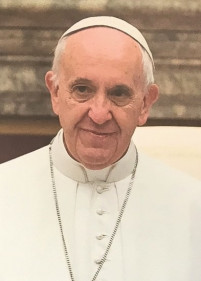Q: My coworker is a Baptist who is married to a Catholic, and attends Sunday Mass regularly with her. He asked the priest whether he could receive Holy Communion even though he is not a Catholic, and the priest replied, “Do whatever is in your own heart.” Is that correct? Can a non-Catholic receive Communion in a Catholic church? –Charlie
A: Canon 844.1 lays out the general rule: Catholics are to receive the sacraments from Catholic ministers, and Catholic ministers lawfully administer Catholic sacraments only to Catholics. This is consistent with the traditional Catholic theological concept of the sacraments: sacraments presuppose faith, and also nourish, strengthen, and express it (CCC 1123). In other words, to receive Catholic sacraments, you’re supposed to believe what the Catholic Church teaches that those sacraments actually do.
Protestant churches deny the Real Presence of Christ, Body, Blood, Soul and Divinity, in the Blessed Sacrament. They generally teach that Holy Communion is merely a symbol that signifies a Christian’s reception of Christ, but is not an actual reception of Him. Consequently, while they may celebrate communion services, these are not the same as a Catholic Mass, in which an ordained priest confects the Body and Blood of Christ at the altar by saying the words of consecration over bread and wine. This is frequently misunderstood by well meaning Protestants, especially because the worship services in their own churches often appear externally to be the same, or at least basically the same, as a Catholic Mass. But because they do not believe in what the Catholic Church teaches about this sacrament, they may not in fact receive it in a Catholic church.
If a Protestant does come to believe in the Catholic teaching of transubstantiation, and knows that Christ is truly present in the Eucharist, he is by that very fact at odds with the teachings of his own church. Faced with this realization, it would seem that such a person ought logically to begin investigating the possibility of becoming a Catholic!
Interestingly, the code does permit a non-Catholic to receive Catholic sacraments, but only under very specific circumstances. Canon 844.4 states that Catholic sacraments may lawfully be administered to a baptized non-Catholic if (1) he is in danger of death or has some other grave and pressing need; (2) he cannot approach a minister from his own church; (3) he asks for the Catholic sacrament(s) freely, of his own accord; (4) he demonstrates Catholic faith in these sacraments and is properly disposed to receive them.
The Conference of Catholic Bishops in each country is permitted to determine what constitutes the “grave and pressing need” mentioned in criterion #1; an individual parish priest is not allowed to make this determination for himself.
As we can see, it is technically possible for a non-Catholic Christian to receive Holy Communion from a Catholic minister, but the set of necessary circumstances delineated in canon 844.4 is so restrictive that it will not happen very often. And the situation Charlie described, in which a Baptist routinely attends Sunday Mass with his Catholic wife, definitely does not meet the required criteria for his reception of Communion. He clearly is not in danger of death; there is no indication that he is unable to ask for the sacraments from his own protestant minister; and there is not even any evidence that he believes, in accord with Catholic teaching, in the Real Presence of Christ in the Eucharist. While the priest who approved of his reception of Holy Communion presumably wished to encourage this non-Catholic’s attendance at weekly Mass, he violated both Catholic theological teaching and canon law by allowing him to receive Holy Communion under these circumstances.
Why is Google hiding the posts on this website in its search results? Click here for more information.


 Canon lawyers are not responsible for the content of canon law. The Supreme Legislator is. Only Pope Francis can change the Code of Canon Law, so if you're not happy with what the law says, please take it up with him.
Canon lawyers are not responsible for the content of canon law. The Supreme Legislator is. Only Pope Francis can change the Code of Canon Law, so if you're not happy with what the law says, please take it up with him.
